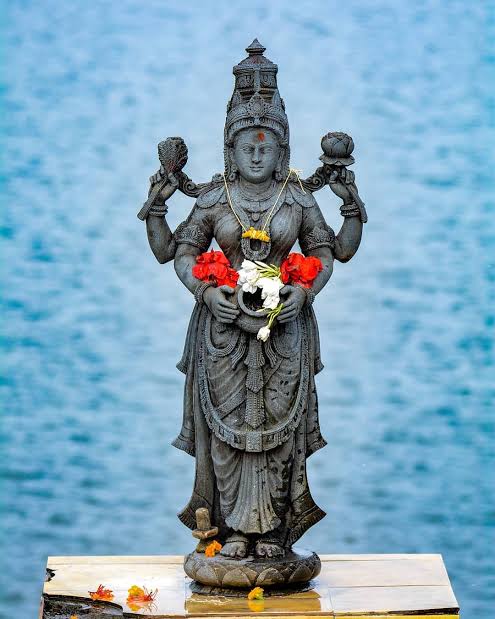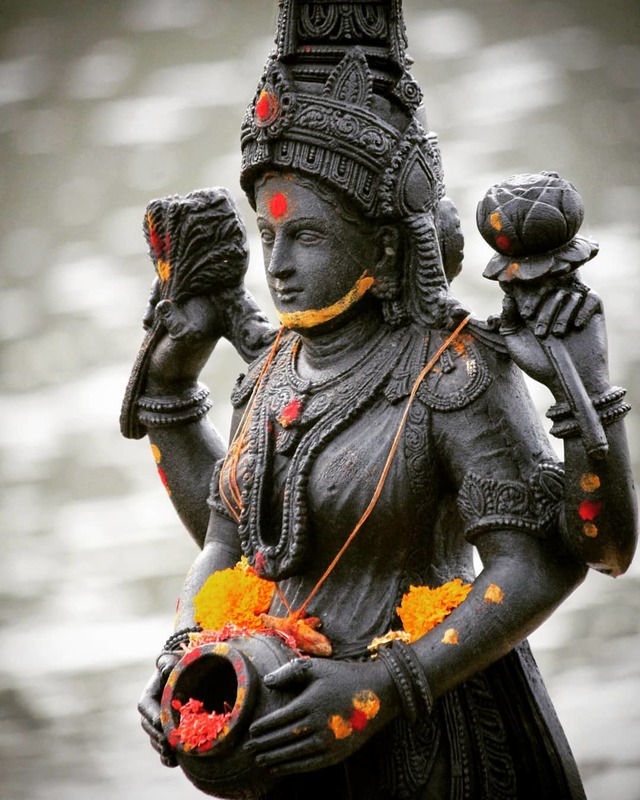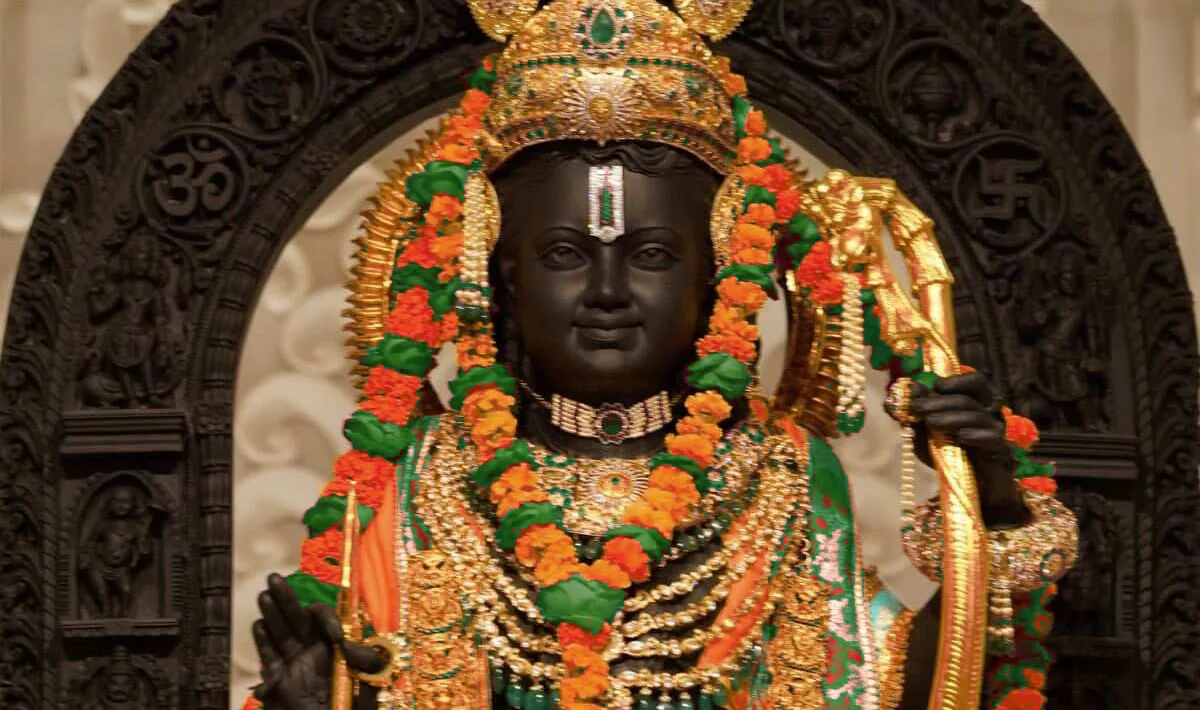Aadi Perukku
Aadi Perukku, also called Pathinettam Perukku, is a Tamil monsoon festival celebrated on the 18th day of the Aadi month (mid-July to mid-August). It honors rivers, especially Kaveri, for sustaining life and agricultural prosperity. It is a deeply feminine festival glorifying Shakti, prosperity, and abundance.
Aadi Perukku is an ancient celebration of nature, rivers, and the life-giving monsoon. The term “Perukku” in Tamil means “to multiply,” symbolizing prosperity.
Women perform pujas along riverbanks, float lamps, prepare special rice dishes, and pray for fertility, marital harmony, and prosperity. It is both a spiritual and communal celebration deeply rooted in Tamil agrarian culture.
Deities Associated
- Goddess Kaveri: Revered as a divine mother, her swelling waters are believed to bless fertility and cleanse sins.
- Goddess Parvati (as Annapoorneshwari): The nourisher who blesses homes with abundance.
- Goddess Lakshmi: Worshipped for wealth and prosperity.
- Village Goddesses (Amman): Worshipped during the Mulaipari ritual for agricultural bounty.
When Kaveri swells, Shakti rises – Aadi Perukku flows with the grace of the Divine Mother.
Origin, Significance & Vedic Astrological Relevance
Mythological Significance
Aadi Perukku traces back to ancient Chola lands, where Kaveri was worshipped as a mother. It is believed that even Bhagawan Rama took a ritual bath in the Kaveri to cleanse himself after the war with Ravana.
Goddess Annapoorneshwari emerged to end scarcity when Shiva dismissed the material world. Her return restored nourishment and balance, symbolized during Aadi Perukku.
The River Kaveri, according to Brahmavaivarta Purana, purifies sins (Ka), fulfills desires (Ve), and grants salvation (Ri). Hence, Kaveri is not just a river but the embodiment of the sacred.
Vedic and Jyotish Relevance
Aadi month aligns with the southern solstice (Dakshinayana), a powerful time for Devi worship. The Sun enters Karka Rashi (Cancer), ruled by the Moon, activating the water element.
Worship of water bodies during Aadi harmonizes the Jala tattva, purifies karma, and enhances emotional well-being. It’s a month for surrender and spiritual reset.
Customs, Traditions & Rituals
- Women wear new clothes, adorn themselves with turmeric and flowers, and go to the river.
- Floating of lamps (Maavilakku) with mango leaves and turmeric in rivers is significant.
- Chitrannam: Rice dishes like lemon rice, tamarind rice, sweet pongal are offered.
- Sumangali Pooja: Married women exchange Mangalsutras and pray for marital bliss.
- Mulaipari: Germination of nine grains in mud pots, taken in procession to riverbanks.
- Unmarried girls offer Kaapparisi, Karugamani, and Kaadholai to seek ideal life partners.
- Villagers take out processions of local Goddesses in grand fashion.
- Sapparam (chariot toy) is rolled by children in celebration.
Puja Vidhi & Puja Katha
Step-by-Step Puja Vidhi
- Clean the house and decorate with kolams.
- In the puja room, make two turmeric Ganeshas (manjal pillayar).
- Offer banana leaf with flowers, turmeric, kumkum, blouse pieces, bangles.
- Light the lamps and float them on the river or symbolically in a water bowl.
- Offer chitrannam, fruits, coconut, and jaggery.
- Tie the yellow thread (manjal kavuni) as protection.
- Sprinkle turmeric water on idols or plants.
Aadi Perukku Katha
Once, when Shiva claimed the material world was an illusion, Parvati disagreed and vanished. The world plunged into scarcity. As Annapoorneshwari, she returned with food and abundance, even feeding Shiva. She restored prosperity.
Similarly, River Kaveri, born from Agastya’s kamandalu, rose in divine grace during monsoon, blessing people with food, fertility, and fortune. Hence, she is honored during Aadi Perukku.
Celebrations Across India
- Tamil Nadu: Celebrated on Kaveri banks in Trichy, Mayiladuthurai, Kumbakonam, Srirangam.
- Sri Lanka: Tamil communities observe river pujas and feminine rituals.
- Karnataka border: Observed with turmeric water and river worship.
Temples Where This Festival Is Prominent
- Amma Mandapam, Srirangam
- Thiruvanaikaval Akhilandeswari Temple
- Kaveri Pushkar Ghat, Mayiladuthurai
- Meenakshi Temple Tank, Madurai
How to Observe
- Wake up early, wear traditional clothes
- Offer turmeric water to idols or plants
- Cook 5+ rice dishes and offer them with devotion
- Light a lamp and float it (physically or symbolically)
- Tie yellow thread as protection
- Do Sumangali Pooja and gift bangles
Benefits of Celebrating
- Enhances fertility and prosperity
- Brings marital harmony and protects relationships
- Ensures good harvest and rainfall
- Aids emotional cleansing through water rituals
- Helps initiate auspicious new beginnings (property, business, marriage)





